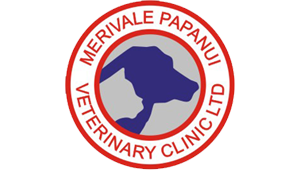Library
-
Blepharitis (inflammation of the eyelid) can affect one or both eyes. The affected eyelid will usually be red, swollen, and itchy. Any condition that can cause irritation of the eyelids can lead to blepharitis. The numerous potential causes of this condition, along with the clinical signs, diagnosis, treatment, and prognosis are outlined in this handout.
-
Gastric Dilatation and Volvulus (GDV) is an acute, life-threatening condition where the stomach fills with large amounts of air and then twists around, effectively cutting off the outputs to the esophagus and intestine. Causes, signs, treatment, prognosis, and prevention are discussed.
-
A blood feather or pin feather is a new feather growing on a bird. Blood feathers are a normal part of feather maturation. When feathers first erupt from the skin, they contain blood. Injury to the feather as it grows may cause the blood feather to become broken, causing blood loss that may require emergency treatment.
-
A transfusion reaction is an adverse response by the body to a blood transfusion. The clinical signs and treatment protocols both vary based on the type of reaction. Prior to a blood transfusion, your veterinarian may perform tests to help ensure that the donor blood is a good match for your cat.
-
A transfusion reaction is an adverse response by the body to a blood transfusion. The clinical signs and treatment protocols both vary based on the type of reaction. Prior to a blood transfusion, your veterinarian may perform tests to help ensure that the donor blood is a good match for your dog.
-
When traveling, you may need to board your pet at a kennel or veterinary clinic. Ask for references to find a boarding facility and visit it before having your pet stay there. A short stay before a longer trip can help your pet to settle in more easily. Be sure to leave emergency contact details for you and your veterinarian.
-
When traveling, you may need to board your pet at a kennel or veterinary clinic. Ask for references to find a boarding facility and visit it before having your pet stay there. A short stay before a longer trip can help your pet to settle in more easily.
-
Body condition scoring is an effective objective method of determining if a pet is at a healthy weight. There are 2 scoring systems: one out of 5 and the other out of 9. This handout outlines how to body condition score pets and recommends tracking body condition score to keep pets at a healthy weight, an important factor in pets living longer with less health complications.
-
This handout summarizes the most common forms of lameness in growing dogs. Included are osteochondritis dissecans (OCD), panosteitis, hypertrophic osteodystrophy (HOD), elbow dysplasia, ununited anconeal process (UAP), fragmented coronoid process (FCP), patellar luxation, and hip dysplasia.
-
Bone marrow is the soft material found in the central core of many bones. Bone marrow is commonly collected and examined when abnormalities are found in the circulating blood. The pathologist's report typically provides information about the health of the marrow, the types of cells present, whether abnormal cells are found, and other details that may help to explain the patient's illness.
